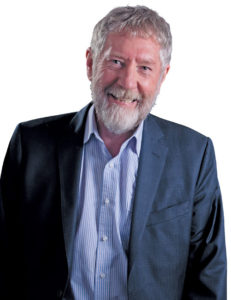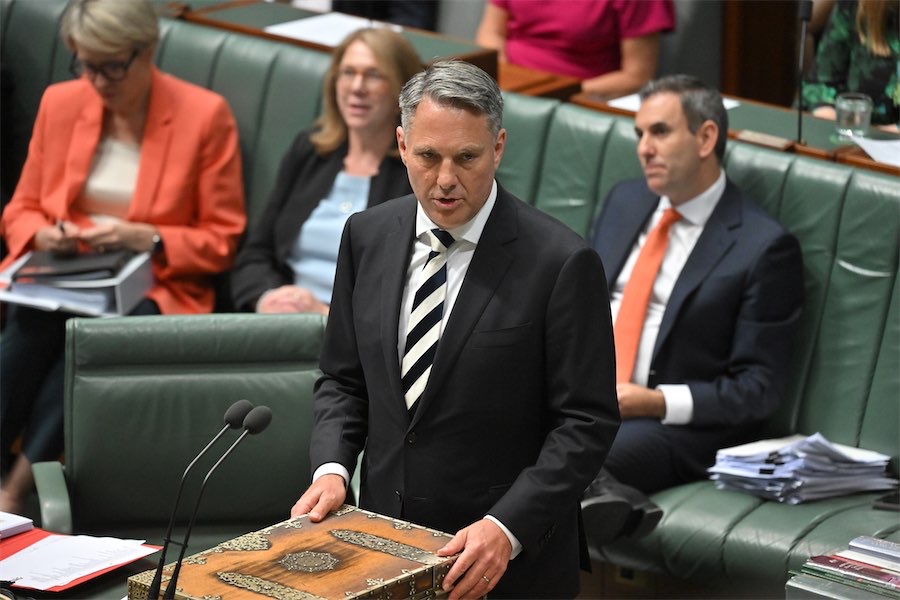“Australians have embraced social media and forgone much of our privacy. Allowing officials access to use this information to spy on individuals in a methodical manner ought not be allowed without the most careful of protections,” writes political columnist MICHAEL MOORE.
AFTER failing to trounce Malcolm Turnbull for the prime ministership, Peter Dutton has methodically gone about consolidating his power.

His latest move is to provide the Australian Signals Directorate (ASD) with the power to spy on Australians.
Despite criticisms of interference with the freedom of the press through the police raid on the ABC, efforts are being made to increase powers. The warrants used were valid, however the inadequacy of protection of journalists and their sources has also been highlighted. The raid was carried out by the Federal Police following a formal ministerial direction by Peter Dutton personally.
Of concern is the constant whittling away of the freedoms of Australians. Australians have embraced social media and forgone much of our privacy. Allowing officials access to use this information to spy on individuals in a methodical manner ought not be allowed without the most careful of protections. Personal privacy concerns were behind the rejection of the Australia Card in 1987.
Despite similar concerns, Peter Dutton has access to considerable investigative powers through the Federal Police and what was the Department of Immigration.
The Australian Signals Directorate (a statutory agency in the Defence portfolio) monitors, hacks or spies on foreign cyber intelligence but is restricted from doing the same within Australia. Minister Dutton argues this power could be used to track paedophiles if it could be used in Australia.
At first the argument was tracking paedophiles and stopping cyber-attacks. Within moments it was broadened to pursuing “serious criminal activity”. Reassurance was the same as usual… these powers will be limited and, as in last week’s column, “if you have nothing to hide – you have nothing to worry about”.
ASIO has the power to spy on Australians. It is their role. The powers have increased with the commensurate escalation in the threat of terrorism. However, the powers of ASIO are restricted with appropriate checks and balances. But for how long?
These checks and balances go back to the days of the “threat” of Communism. Many will remember the dramatic raid on ASIO by the Attorney-General Lionel Murphy in March, 1973. The raids were on his initiative alone and instigated the Hope Royal Commission on Intelligence and Security, which was concerned with the privacy of Australians and misuse of power.
It recommended “the establishment of an independent Office of the Inspector General of Intelligence and Security, in part to scrutinise ASIO’s operations and ensure… rigorous internal rules to protect people’s privacy”.
The investigative powers of ASIO are contained. Section 26 of the Australian Security Intelligence Organisation Act 1979 requires approval of the Attorney-General to issue a search warrant. There must be “reasonable grounds”, it must “substantially assist in the collection of intelligence” and it must be “important in relation to security”. These are important limitations on considerable powers.
However, restrictions on such powers have very different impacts when they are applied to electronic media. Monitoring the web, personal emails, Facebook and other social media platforms are so much easier than surveillance of a person’s home or workplace.
The inspector-general is established under its own act and is in a position to monitor and report to the Attorney-General. Considering the moves that Peter Dutton has made in consolidating power, it is reasonable to wonder how long will it be before the Inspector?General of Intelligence and Security Act 1986 is also drawn under the influence of Home Affairs and its minister?
ACT residents are not immune from Peter Dutton’s influence. He recently described ACT laws legalising cannabis use as “unconscionable” and indicated that Attorney-General Christian Porter was considering legislation to override the ACT. Fortunately, Porter was not as forthcoming and played down the possibility.
Wendell Phillips reminded us “Eternal vigilance is the price of liberty”. What is less known is that he continued with “power is ever stealing from the many to the few”. In this context, it is appropriate to ask: when does consolidation of power cross the line to megalomania?
Who can be trusted?
In a world of spin and confusion, there’s never been a more important time to support independent journalism in Canberra.
If you trust our work online and want to enforce the power of independent voices, I invite you to make a small contribution.
Every dollar of support is invested back into our journalism to help keep citynews.com.au strong and free.
Thank you,
Ian Meikle, editor





Leave a Reply